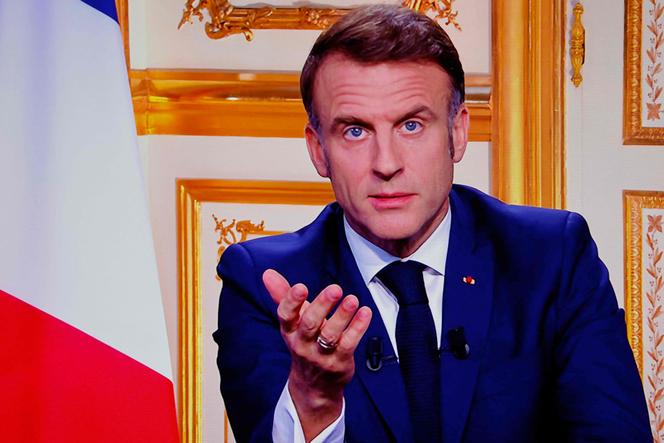


Alone, facing the French people. On Thursday, December 5, after three months of being forced to distance himself from the national scene, leaving the decisionmaking to the prime minister, President Emmanuel Macron delivered a solemn address to the nation.
Following the historic ousting of Prime Minister Michel Barnier's government by the Assemblée Nationale – by a significant majority (331 votes) of votes, combining the left-wing Nouveau Front Populaire (NFP) coalition and the far right – Macron felt compelled, said a source at the Elysée, to reassure his fellow citizens unsettled by the climate of political chaos reigning in the country and "to bring down the masks" of his opponents.
Macron, accused by his opponents of being largely responsible for the political instability that has plagued France since his disastrous dissolution of the Assemblée Nationale in June, defended himself. Yes, he conceded, "this decision was not understood." "I'm willing to admit it," he said for the first time. "Many have reproached me and I know, many continue to reproach me. It's a fact and it's my responsibility," he continued. Many of his supporters have indeed been alienated, leaving them disillusioned and casting a shadow over his second term.
But this dissolution, he insisted, was "inescapable." With his hands clasped together in the Salon Doré of the Elysée Palace, Macron refused to be named as the ultimate culprit for the fall of the prime minister he had chosen on September 5 after a very long period of reflection. It was he, though, who preferred Barnier, a right-wing candidate, to a figure from the NFP, the political bloc that came out on top in the legislative elections, a decision he had made in the name of "institutional stability."
In the eyes of the far right and the radical left La France Insoumise (LFI) party, the motion of no confidence was the fruit of the erring ways of the president, whom they accuse of disregarding the will of the people. "I'm well aware that some people are tempted to make me responsible for this situation. It's much more comfortable," lashed Macron, refusing to "take on the responsibilities of others."
Orchestrating a duel between himself and the "extremes," Macron is trying to put an end to the idea, pushed by LFI and by some in the far-right Rassemblement National (RN), that he should sooner or later resign, for lack of popular legitimacy. "The term you have democratically entrusted to me is a five-year term, and I will exercise it to the full until the end," he warned. And, as if to respond to those who suspect him of clinging to power, he swore that "the only timetable that matters to me is not that of ambitions, but that of our nation," pointing out that he is constitutionally barred from standing for re-election in 2027.
You have 66.81% of this article left to read. The rest is for subscribers only.
